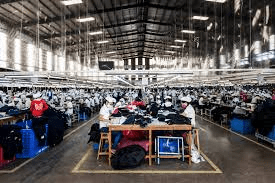Ivorian designer Ibrahim Fernandez is currently depending on home delivery services to continue his sales. Social media applications like Instagram, Facebook, Youtube and TikTok have shown their importance during this crisis and have quickly become the most important tools for brands and designers as these apps allow them to stay in touch with their clients and communities.
Considerations and solutions have been adopted by some of the famous designers during this quarantine period like Zak Koné, who established his brand “Pelebe” in Ivory Coast in 2013 and shares tutorials online only to have a presence in the minds of consumers. He says he got much support from his followers on social media. Sefiya Diejomaoh, Nigeria’s famous fashion designer has made a face mask as a part of her fashion styling making a bold statement for fashionistas. Sophie Zinga, a fashion designer of Dakar, decided to start production of masks from organic cotton after realizing that a kind of protective clothing measures may be needed for the coming two years. To overcome the problems created due to this quarantine some measures have been in the mind of designers like as follows:
Survival instincts: Countries in North Africa might benefit from the European Union, to export more garments to these markets. This would entail moving towards smaller production quantities and developing closer links with upstream textile and trim suppliers in the same county or region.
Discount mindset: Surplus inventory and cash-strapped consumers like to be offered some negotiated deals, by using this technique to regain their value and again think in their business broadening missions or goals.
Darwinian shakeout: In this quarantine, the brands that stand nowhere in the competition will be removed just like the Darwin words “survival of the fittest” so the brands will strengthen its market value.
Meanwhile, in this crisis, we believe that while we may be stuck indoors, using social media our voices can still be followed, especially when we speak together. That’s why we’re asking our global community to be louder than ever. If we do nothing, the fashion industry will simply make it business as usual when this crisis is all over. Instead, let’s get united as a revolution and construct a new system that values the wellbeing of people and planet over profit. This means that right now we should stand together to protect and support the people who make our clothes.
Data source: Fashion United Africa




